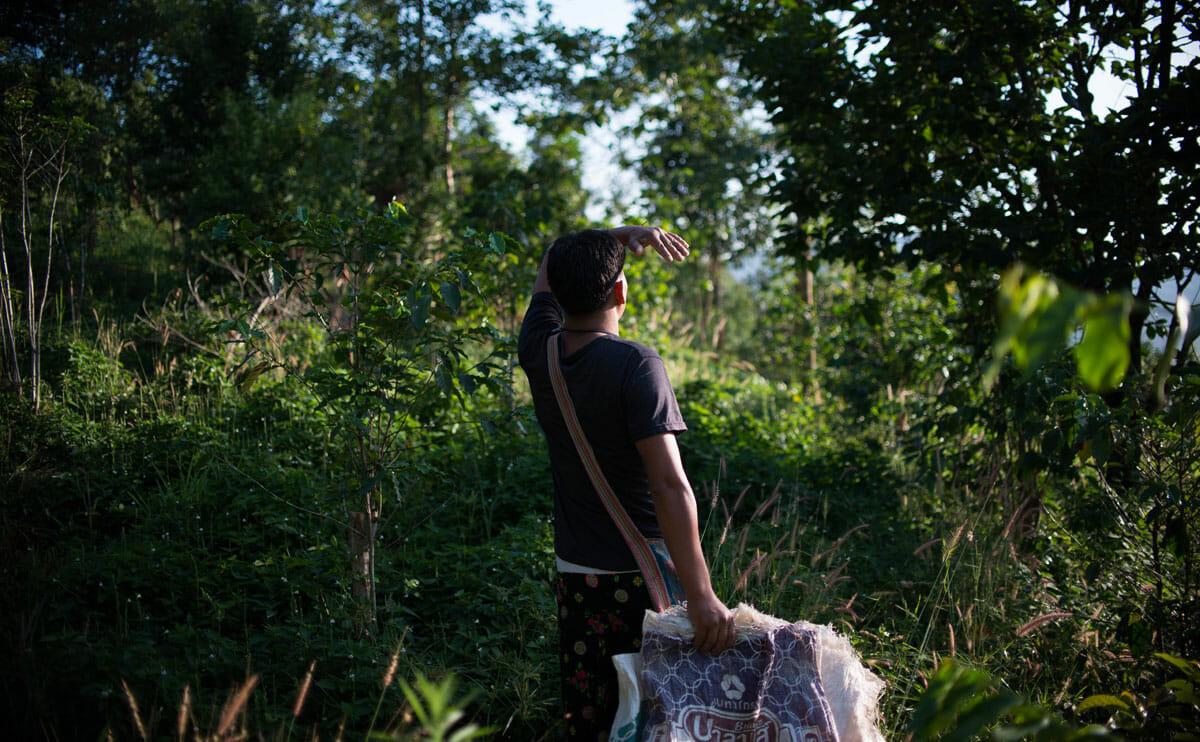Gorgeous photos of indigenous coffee and lychee farmers in Southeast Asia.

In the later half of the 20th century, as westernization and the modern world spread into the highland and mountain regions, government pressure began to phase out the growing of opium, a traditional cash crop for the Lahu people. Along with this push towards sedentary agriculture came the culturally harmful ban on traditional hunting. This, coupled with further restrictions from the authorities, had a devastating impact on the lives, livelihood and cultural practices of the Lahu people.
Recently, large agricultural and farming companies have begun pushing new and often harmful products onto these now sedentary and agricultural communities (with little regard for the long-term effects on the people or the land). This is where the pivot towards organic and community-based initiatives began. Empowering the local community and village with the knowledge and skills to both protect the land as well as to improve their current conditions.
The farm grows a variety of fruits and vegetables that are sold both locally as well as in Chiang Mai and Chiang Rai in the lowlands. Its largest and most important crop is coffee, which is sold throughout the north of Thailand as well as in North America and Europe.
[mf_1200px_image src=”https://modernfarmer.com/wp-content/uploads/2014/07/thailand2.jpg” caption=”A basket of ripe Lychee fruit sits by the farm house ready to be sent down to the markets in the low-lands.” captionposition=”below” parallax=”off”]
[mf_1200px_image src=”https://modernfarmer.com/wp-content/uploads/2014/07/thailand3.jpg” caption=”Racks of coffee beens laying out to dry in the sun.” captionposition=”below” parallax=”off”]
[mf_1200px_image src=”https://modernfarmer.com/wp-content/uploads/2014/07/thailand4.jpg” caption=”A farm laborer takes an evening smoke.” captionposition=”below” parallax=”off”]
[mf_1200px_image src=”https://modernfarmer.com/wp-content/uploads/2014/07/thailand5.jpg” caption=”Lo-Ue Jayo, the head farm worker and Lahu tribesmen, carefully sorts the freshly roasted coffee beans.” captionposition=”below” parallax=”off”]
[mf_1200px_image src=”https://modernfarmer.com/wp-content/uploads/2014/07/thailand6.jpg” caption=”One of the many farm dogs sits patiently by the kitchen door awaiting his dinner.” captionposition=”below” parallax=”off”]
[mf_1200px_image src=”https://modernfarmer.com/wp-content/uploads/2014/07/thailand7.jpg” caption=”A farm worker uses a long length of bamboo to pick ripe Lychee from the tops of a Lychee tree.” captionposition=”below” parallax=”off”]
[mf_1200px_image src=”https://modernfarmer.com/wp-content/uploads/2014/07/thailand8.jpg” caption=”Lo-Ue Jayo, the head farm worker and Lahu tribesmen, picks fruit from a tree on the Suan Lahu grounds.” captionposition=”below” parallax=”off”]
[mf_1200px_image src=”https://modernfarmer.com/wp-content/uploads/2014/07/thailand9.jpg” caption=”Lo-Ue Jayo, the head farm worker and Lahu tribesmen, feeds coffee beans into the coffee roaster.” captionposition=”below” parallax=”off”]
[mf_1200px_image src=”https://modernfarmer.com/wp-content/uploads/2014/07/thailand10.jpg” caption=”Farm workers navigate a tangle of tubes as they instal a new water filter.” captionposition=”below” parallax=”off”]
[mf_1200px_image src=”https://modernfarmer.com/wp-content/uploads/2014/07/thailand11.jpg” caption=”Two of Suan Lahu’s farm workers try and find a signal in the farmhouse kitchen. Being located high in the mountains, a steady cell signal is near impossible to find. ” captionposition=”below” parallax=”off” title=”Suan Lahu Farmers” alt=”Suan Lahu Organic Farmers on phone”]